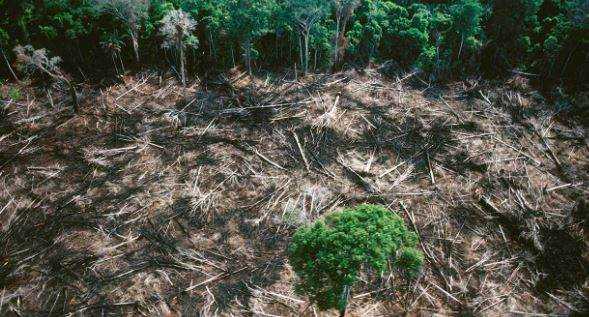
02-May-2020
Biodiversity Is Busted Thanks To Coronavirus Pandemic
Habitual pettiness has started. The quantity of COVID-19 casualties is as yet obscure, however, there is a flood of despise and falsehood invading timetables. The harm of disinformation and the infection itself to families and networks is equivalent to our inability to guarantee that science, not talk, shapes approach.
Studies demonstrate that it is increasingly basic for infections to be transmitted from creatures to people. Some incorrectly states this is because of harmless human blunders.
In any case, there is confirmation that the protection and a decent variety of biotopes, or living spaces, reduce human-creature contact and the probability of new pathogens showing up in people. Our inability to depend on science is the main consideration hidden in our current coronavirus emergency.
Diseases transmitted from creatures are more predominant than at any time in recent memory. A 2017 friend looked into the study found that 75% of developing irresistible sicknesses influencing people, for example, West Nile infection, Ebola, SARS, and Lyme malady, are zoonoses, or ailments brought about by pathogens that have bounced from creatures.
Reports of zoonoses have shown up all through recorded mankind's history. The Book of Samuel in the Old Testament portrays a scourge of bubonic plague well before it destroyed 33% of Europe's populace in the fourteenth century. In 2,300 BC, rabies from chasing hounds attacked Mesopotamia. Specialists re-perusing Plutarch found in 2003 that Alexander the Great's passing in 323 BC was presumably because of the West Nile infection he contracted from a herd of ravens that fell dead at his feet as he entered Babylon.
Investigations of the expansion in zoonoses demonstrate that such illnesses can result from human-actuated changes to regular environments: urban turn of events, the transformation of wetlands to farming, contamination, and deforestation are key elements.
Research on Ebola has connected the episode to agrarian practices. At the point when timberlands were cleared to develop crops, creepy-crawly taking care of bats vanished, while natural product eating, Ebola-facilitating bats duplicated.
Powerful biodiversity cushions the spread of malady transmission to people. In a 2010 article distributed in Nature, Felicia Keesing and 12 different specialists reasoned that safeguarding and ensuring unblemished biological systems and their endemic biodiversity diminishes human-creature contact, the beginning of new pathogens, and the commonness of irresistible ailments.
When the COVID-19 pandemic passes, we can't bear to come back to anything new. Amassing ventilators and veils won't shield us from the following pandemic.
The main positive approach to act all things considered and dependably, for our own endurance, is to guarantee that our environments are assorted. That implies updating propensities that urge us to devour in manners that have demonstrated to be impractical – and in this way inconvenient to our own prosperity.
On the off chance that it wasn't clear before COVID-19, it ought to be presently: protection of biotopes must be high on national plans. It is the best – and the most savvy – approach to forestall future flare-ups that jeopardize our lives and undermine our vocations.

Content Writer/Journalist
I am a content writter !
Join Our Newsletter
Subscribe to our newsletter to receive emails about new views posts, releases and updates.
Copyright 2010 - 2026 MindStick Software Pvt. Ltd. All Rights Reserved Privacy Policy | Terms & Conditions | Cookie Policy